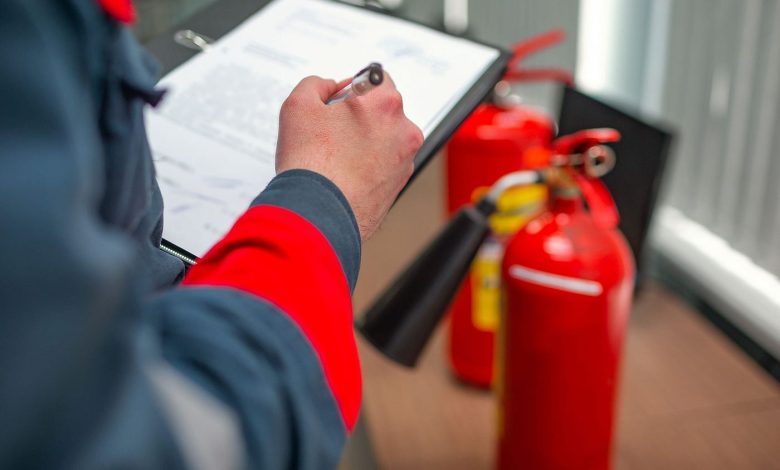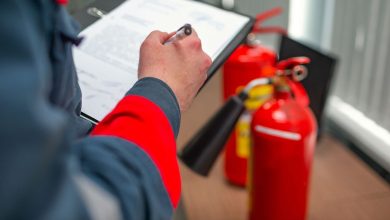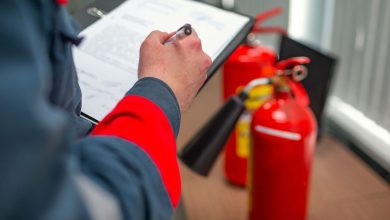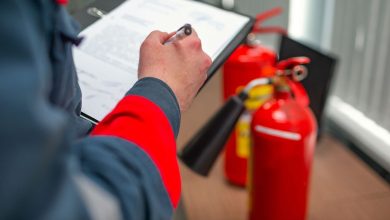Fire Training Drills: How Often Should You Conduct Them?
Fire Training

In today’s fast-paced work environments, emergencies can strike without warning. One of the most effective ways to ensure your team is prepared is through fire training drills. These drills are not just about meeting legal requirements—they’re about building confidence and saving lives. At Sri Triveni Crafts, we help businesses implement practical fire safety programs that include regular training and evaluations. In this blog, we’ll dive into how often you should conduct fire training drills and why consistency is key to readiness.
Why Fire Training Drills Are Essential
A fire drill is more than just a routine exercise. It prepares people to act quickly, safely, and responsibly when a real emergency occurs. Whether it’s an office, factory, school, or residential building, practicing evacuation procedures ensures that everyone knows what to do.
Preparedness Saves Lives
Fire spreads fast, and panic can lead to dangerous decisions. Training drills help individuals stay calm, recognize alarms, and exit the premises safely. They also help identify any issues in your evacuation plans—like blocked exits or communication breakdowns—before they become life-threatening problems.
How Often Should You Conduct Fire Drills?
The frequency of fire drills depends on several factors, including your industry, the size of your premises, and local fire safety regulations. However, general best practices offer a solid guideline for most organizations.
General Recommendation: Twice a Year
For most workplaces, conducting fire drills at least twice a year is advisable. This frequency ensures that employees remain familiar with escape routes and emergency protocols without becoming complacent.
High-Risk Environments: Quarterly Drills
In facilities where flammable materials, chemicals, or machinery are present, such as manufacturing units or warehouses, quarterly drills are recommended. These settings pose a higher fire risk and require more frequent rehearsals to maintain a high level of readiness.
New Employees or Changes in Layout
If your business hires new employees, changes its floor plan, or installs new fire safety equipment, additional drills should be scheduled. New staff must be introduced to safety protocols, and any alterations to building layout may affect evacuation procedures.
Compliance with Local Laws
In India, the National Building Code (NBC) and Fire Safety norms set by local authorities often dictate drill frequency. For example, schools may be required to conduct monthly drills, while corporate offices may follow a biannual schedule. Always refer to your regional regulations to stay compliant.
Best Practices for Effective Fire Training Drills
To ensure your drills are meaningful and not just a formality, consider the following best practices:
1. Vary the Scenarios
Don’t conduct the same type of drill every time. Introduce scenarios like blocked exits, smoke-filled areas, or nighttime evacuations. This helps teams adapt to different challenges and improves critical thinking under pressure.
2. Monitor and Evaluate
Appoint fire wardens or safety officers to observe and assess the drill. Time the evacuation, monitor response times, and note any delays or confusion. After the drill, conduct a debrief to discuss what went well and what needs improvement.
3. Keep It Unannounced Occasionally
While planned drills are useful for training, unannounced drills mimic real emergencies more closely. This helps measure true preparedness and reaction times when individuals are not expecting the alert.
4. Include All Departments and Shifts
Ensure that fire drills cover all personnel, including night shifts and maintenance staff. Safety is a collective responsibility, and everyone should be included in the training schedule.
Sri Triveni Crafts: Your Fire Safety Partner
At Sri Triveni Crafts, we understand that proper fire safety isn’t just about equipment—it’s about people being trained and ready to respond. We offer comprehensive fire safety audits and tailored training programs to help businesses of all sizes develop effective safety strategies. Our team helps you plan, execute, and evaluate fire drills that go beyond checklists and create real readiness.
Real-World Results
One of our clients, a logistics company in Bengaluru, conducted quarterly fire training drills with our guidance. During an actual fire caused by an electrical fault, the evacuation was completed in under three minutes without injuries or chaos. Their preparedness made all the difference.
Conclusion
Routine fire training drills are a vital part of workplace safety. Whether you’re in a small office or a large industrial site, conducting drills regularly ensures that everyone knows what to do in an emergency. It builds confidence, strengthens coordination, and ultimately protects lives. At Sri Triveni Crafts, we’re here to help your organization stay compliant, proactive, and safe. Learn more about how our fire safety audits and training programs can support your fire safety goals.
Make fire drills a habit—not just a requirement—and empower your team with the tools they need to face emergencies with confidence. Because when it comes to safety, fire training makes all the difference.
Frequently Asked Questions (FAQs)
1. Are fire drills mandatory in India?
Yes, many state and municipal fire departments in India require regular fire drills, especially in commercial and industrial premises, to comply with the National Building Code and local fire safety laws.
2. Who should be involved in fire training drills?
All employees, contractors, and even visitors should be aware of emergency exits and participate in drills. Everyone in the building during a drill should take part.
3. How long should a fire drill take?
A standard fire drill should aim to evacuate the building within 2 to 5 minutes, depending on the size and complexity of the premises.
4. What if someone fails to follow procedure during a drill?
Use it as a learning opportunity. Review what went wrong and provide additional training if necessary. Drills are designed to highlight areas for improvement.
5. Can Sri Triveni Crafts help us create a custom fire drill schedule?
Absolutely. We can assess your facility, review compliance requirements, and design a drill schedule and training plan tailored to your specific needs.


